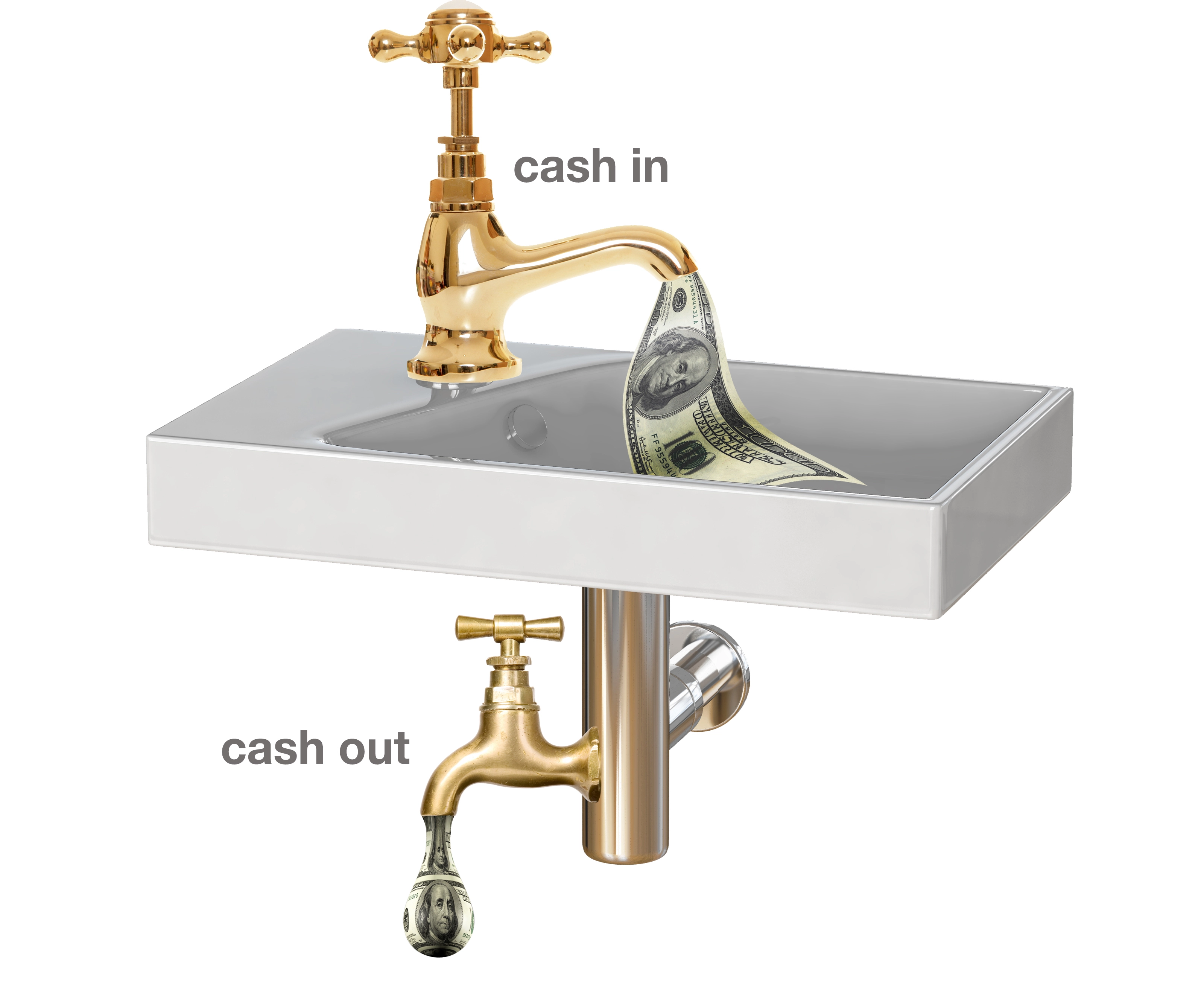The�ft happens to everyone else. Of course. But when it happens to you … Here are two contractors’ stories:
CONTRACTOR ONE:
About 20 years ago, I gave a contractor the processes and tools to grow a great business. I saw him over the years at trade shows and he always said that he was doing well. As it turned out, he wasn’t. He called me, almost crying. “I need your help. My manager has embezzled $220,000.”
He had gotten complacent. He had stopped paying attention to the � nancial side of the business. He stopped paying attention to his managers. (He discovered that the manager who had stolen has a gambling problem). It took the embezzlement of almost a quarter of a million dollars for him to wake up again. Ouch!
Assuming that his company nets 10%, it will take $2,200,000 in revenues to replace the $220,000 that was embezzled. Over $2 million because he stopped paying attention. � is is a very di� cult, painful lesson to learn.
CONTRACTOR TWO:
I got an email from a contractor who had taken my Building Pro� t and Wealth class. On the second day of the course , I go over the procedures you need to put in place to keep honest people honest. �Ths contractor hired a bookkeeper when the company was in trouble financially. She came in, cleaned up the books, and the owner could tell where the company was � financially so he could make the decisions necessary to get the company profitable again.
The bookkeeper was instrumental in getting clean � financials. She befriended the owner’s wife. He stopped looking at fi nancial statements every month because he trusted her. �The embezzler had become the trusted bookkeeper. About a year ago, the company went to direct deposit for their payroll. � This was the opportunity the embezzler was looking for. She would take a direct deposit check and then write one to herself, cash the check, and delete it from QuickBooks. Th e owner � finally paid attention when he couldn’t understand why he was starting to have cash � flow problems.
When he called me about this situation, his comment was, “I sat in your class thinking that this would never happen to me … and it did.” She embezzled about $60,000 before she was caught. At a 10% net pro�fit, this owner has to generate $600,000 in revenue to pay for this mistake. Ouch!
My question to you: What is it going to take for you to pay attention?
Do you think “�This will never happen to me?”
If you do, and if you ignore the � financial side of your company, the likelihood is that someone will take money or materials from you at some point. Do you want this hurtful, expensive lesson?
All of you will pay attention a�fter someone steals from you. Unfortunately, it’s too late then. Hopefully, most of you will put the procedures in place so that doesn’t happen at all.
So, what do you have to do?
1. Look at your bank account nline every day. It takes less than 5 minutes. See what checks and ACH’s have cleared. Make sure everything makes sense.
2. Understand and review your � nancial statements every month. It takes less than 30 minutes once you understand what they are telling you. It is easier to learn what a P&L and balance sheet is than learning to read a wiring diagram!
3. Never, ever totally trust any bookkeeper, even your mother. I’ve discovered contractors’ mothers who have stolen from businesses!
4. Bookkeepers should never have check signing authority. If they write a check to themselves, then it is ok because you gave them the ability to sign checks.
5. Look at the bank account reconciliations every month. Every accounting software system gives you the ability to print out thereconciliation results. You do it and check the balances against what is showing on your balance sheet and your accounting so� ware.
6. Make sure accounts payable and accounts receivable balances on your balance sheet match the amount shown on your aged receivables and aged payables reports. If these don’t match, then start digging. I’ll bet that you �find someone is stealing from you.
7. Never abdicate the � nancial side of your business. Always pay attention! � these are just a few simple procedures to put in place (you can find more in my book, � e Ugly Truth about Cash).
What is it going to take for you to pay attention?






